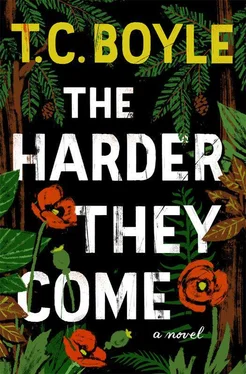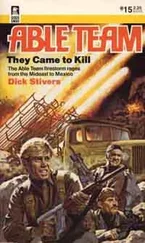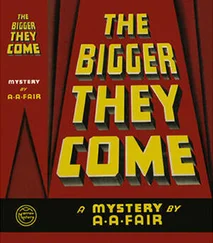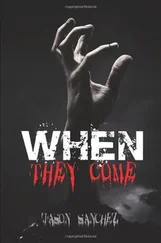Problem was, he had a wicked case of poison oak. It was in between his fingers, blisters so big there it hurt to make a fist. And he’d somehow managed to get it on his cock, pissing, most likely, but then you had to piss and to get it out you had to touch yourself and that’s where the poison oak got in. He’d heard that if you ate some of the leaves you’d be immune and he’d tried that when he was twelve or thirteen and all that had happened was he had blisters on his lips and in his mouth and halfway down his throat so he couldn’t even eat for a week, so that, to put it mildly, was bullshit. Anyway, he needed calamine lotion and she’d gone to the store and gotten it for him and now, right now, with the sun straight up overhead, he was skirting the dog-face’s property and heading back to the house to dose himself with it, especially down there where every step chafed him and the itch was a thing you couldn’t scratch because that would only make it worse but he was scratching it anyway and it was bringing tears to his eyes.
Down one slope, across the river that was less a river every day, up the other slope and through the trees to the house, the wall there, and then up and over the wall and into the yard. Two whispers: his feet touching down. The dirt. Yellow weeds. Sun. A hole the Rasta dog had dug, no bigger than a birdbath. One tree, puny, leaves drooping. And what was this? A bicycle up against the wall, cinnamon red, with dirty white tape wrapped around the handlebars, and that was strange because Colter didn’t have a bicycle, bicycles hadn’t even been invented yet, and where had that come from? He’d already shrugged out of the backpack and propped the rifle against the wall, but now he straightened up, alert suddenly, his sixth sense kicking in. That was when he heard the voices. That was when he made himself small and slipped round the corner of the house to peer in the window and see his mother there and now his father too, shapes shifting in the sun raking through the glass to cut their heads off and replace them with haloes like in the church with Jesus and Mary but his father wasn’t Jesus and his mother was no saint either.
Slip away, a voice was telling him, whispering to him, slip away over the wall and go deep before they know you’re here, and he realized he could see through the house because the curtains were gone, see all the way across the rugless bare boards, out through the windows on the other side and beyond that to the door his father had cut in the wall. Which stood open. Propped open. And why, if every time his father showed he was going to prop the door open, had he bothered to put that door there in the first place? For security? To keep everybody out? Or in? But there was something there, a vehicle, the broad white flank of it suddenly blasting up at warp speed to spread itself atop the wall, black lettering there, or the tops of letters, letters wearing hats, and for the tiniest hemidemisemiquaver of a second it was a puzzle but a puzzle anybody could have solved: U-Haul . That’s what it said. They had a U-Haul here. And what did that mean? That meant they were taking things. That meant the alien was moving in, into his house, into his grandma’s house, and he could see it now, the alien in the cemetery with his shovel and digging, digging, digging till he had her dead body dripping beetles and grubs and he threw it over his shoulder and came right back and laid her out on the bed to be his bride like in The Evil Dead or one of those movies, he couldn’t remember because they were all the same.
He wanted something. It wasn’t 151, it wasn’t pot or opium or acid or a two-foot-long submarine sandwich heaped with prosciutto, provolone and pickled Tuscan peppers. No. It wasn’t any of that. It was Sara. Sara was what he wanted. And he rose now, confused, because where was she, and that was when the Rasta dog must have seen his shadow because the Rasta dog was barking and they saw him there in the yard and his father was waving him in, waving like the braves on the shore before they peppered Potts. Peppered Potts —he was saying it, saying it aloud — and here they were, his father, his mother and Sara, all of them out the back door and into the yard and the Rasta dog too, barking and inciting the trees till the trees were barking along with him.
“Adam,” and it was like a chorus, “you’re here.”
There was no denying it though he wished he didn’t have poison oak and wished he’d just stayed out there in the woods so he wouldn’t have to crawl through this big dripping heaped-up pile of bullshit and worse bullshit yet to come, so he didn’t deny it. “Yeah,” he said, and he tried to put a smile on his face but it wouldn’t come. He stared down at the ground.
And now his father: “Art Tolleson’s moving in tomorrow. So that’s it. All she wrote. If you want anything, personal things, you better take it now.”
And his mother: “We fixed up a room for you? At the new house? It’s just temporary, I know, and we’ll help you find something, I don’t know, more suitable—”
His father: “When the time comes.”
Sara said nothing. She was just standing there. He was staring at the ground — or no, at her shit-kickers. “What about Sara?” he heard himself say. “What are you going to do, bury her too?”
His father: “What in Christ’s name are you talking about? Stop with this crap. Enough. I’ve had it up to here.” A glare. “You can turn it on and off just like that, can’t you? Isn’t that right?” Nothing. Nobody. The sun, the dirt, the weeds, the shit-kickers. “Well, turn it off. Or take your meds or whatever it is you need because the fact is — the reality — the house is no longer ours.”
His mother: “Sten. Don’t be like that.” Softer now: “Adam, come on, it’s all right. She can, she can maybe, for a few days, I mean, at our house—”
And Sara, finally: “He can come with me. Stay at my place. For as long as he wants.” And then, shifting her face or at least the voice coming out of it as if her head was a loudspeaker but he couldn’t say, not really, because he wasn’t going to look up because if he looked up he’d be part of their reality and he didn’t want any part of being a part of that: “It’s okay, the thirty days are up, no problem. We’ll just help your parents clean up a bit and then tonight”—a pause for his father’s benefit, and she was the saint now and where was her halo? — “we’ll go up the hill. Sound good?”
It didn’t sound good. Nothing sounded good. He wanted his parents out of there — hit “enter” and just beam them up, haloes and all — and he wanted it to be night so he could go in and fuck Sara in the dark. “Personal things,” he said, spitting out the words. “Peppered Potts. Dog-face Moody. And Art Tolleson, I don’t know if you noticed”—raising his eyes now as if they were the high beams on the car—“is an alien.”
His father took two strides forward, his father the giant with his hands like catcher’s mitts, and he was livid. “That’s rum on your breath. You’re drunk. And Jesus knows what else.”
He just shrugged, but it was afternoon and afternoons were never good and here went the wheel, spinning, spinning.
“Now you get your ass in there and pack up your crap”—stinking breath, hostile breath—“and you can come to our house tonight, both of you, or you can go to her house, I don’t really care—”
“Yeah,” he was saying in that other voice, the one that was like vinegar up your nose, “and you can go fuck yourself too. Big hero. Why don’t you just kill me too — wouldn’t that be easier? Isn’t that what you want? Isn’t it?”
Then his father shoved him, hard, didn’t hit him but shoved him, and he was a rock because he hardly felt it and didn’t even take a step back but when his own arms jerked out and he was doing the shoving they were like two pistons pulled right up out of the engine block and his father reeled, his father stepped back, but then his father came at him again and it was ugly, he was ugly, as ugly as Potts, and maybe his mother got into it too, trying to separate them, her voice gone up into the high register till it was like an air-raid siren, and that really was all she wrote, finally and absolutely, because his father was in the dirt now and his mother too and he was gone, rifle, backpack, knife in its sheath, up over the wall and into the high weeds and gone, pure gone.
Читать дальше












